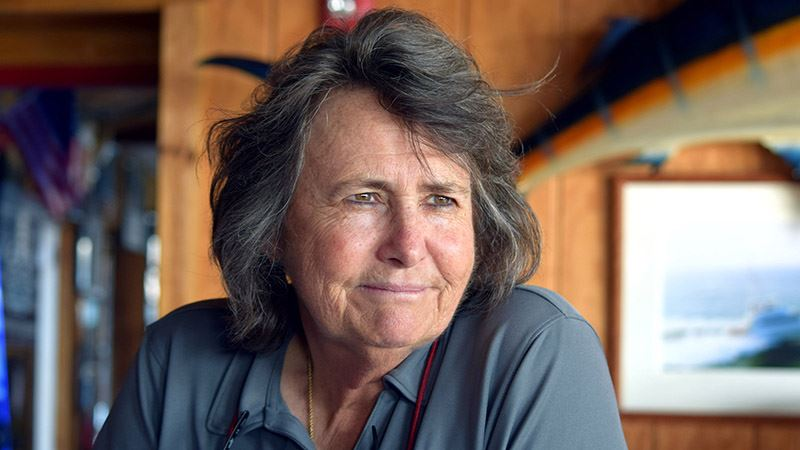Candice Weckman
Sports Editor
Erica Keil had been away babysitting for the weekend. About 20 minutes after she returned home, her body unexpectedly gave out. First, Keil felt extreme pain in her legs and developed a fever. Then, she had trouble breathing and communicating.
“I fell apart,” said Keil. “I’d rather break both of my legs than go through that kind of pain.”
Keil’s parents rushed her to the hospital. Ten minutes after arriving, she lost consciousness. The next morning, she was sent home with no clear answers to why the episode had occurred. In the weeks following her hospital visit, she continued to have seizure-like episodes.
“My symptoms started with severe pain in my legs and progressed to me posturing and losing control of my body,” said Keil.
Finally, the Keils saw a specialist regarding their daughters’ episodes and symptoms. The specialist tested for the parvovirus infection. The test results came back positive.
The parvovirus infection is a highly contagious illness most commonly found in children. While it is often mild and requires little treatment in children, the infection can be very serious in adults.
“Most people are immune to it, or if they have it, they don’t show symptoms,” said Keil. “I am not immune to it and I experience severe symptoms.”
The first weekend in August, Keil’s first major episode occurred. Her legs began aching and throbbing and pain surged through her veins. Her skin turned pale white as she entered her car to drive home.
Before she could start her car, Keil began to twitch and she lost all control of her body. This seizure-like episode lasted for two hours.
“When I woke up the next morning, I couldn’t remember a thing,” said Keil.
A few weeks later, Keil experienced another major episode while driving on a major highway. After this episode occurred, she and her parents knew that there was more to her condition than just the parvovirus infection.
Keil’s parents took her to the hospital, where she stayed for three days. During her stay, she saw another specialist, who gave her further information.
“It [the parvovirus] clashed with another virus in my system, and when the two viruses clash that is what causes the episodes,” Keil said.
When Keil left the hospital, the doctors told her that she would not be able to return to Virginia Wesleyan on time, meaning she would have to miss the beginning of the soccer season.
Devastated by the news, Keil remained determined to finish out her senior year of soccer. She contacted her coaches almost immediately after learning of her illness.
“She let us know right away,” Head Women’s Soccer Coach Jeffery Bowers said.
Unfortunately, only a few weeks after returning to school and practice, the parvovirus stuck again. Keil began having episodes three to four times a week.
One evening on the way to a game, Keil lost all feeling in her legs, her feet turned purple, and her hands froze.
“It was scary. It wasn’t your usual soccer injury, and it was something I had never seen before,” freshman soccer player Tiffany Lennon said.
After the episode, Keil realized that the parvovirus was entirely too serious to allow her to continue playing soccer.
“I originally came to school with the intention of fighting through and playing, but after having a severe episode and seeing that my body was completely worn down and my parvo numbers were very high… I made the decision, along with my coaches, doctors, and family, that not playing soccer would be best for my health,” Keil said.
Not only has her soccer career come to a sudden halt, but her professional career has also been put on hold.
As a senior soccer player at Virginia Wesleyan, Keil has dreamed of working at a Department of State school and playing soccer in a foreign league after graduation for quite some time now.
“I have been told by my doctors that I will not be able to student-teach and that being in a classroom will probably not happen for two to three years because my immune system is just too worn down and I am too at risk from a health perspective,” Keil said.
Despite facing serious setbacks, Keil is determined to come out on top of it all.
“Regardless of what stands in her way, she always attempts to overcome it,” senior soccer player Emily Sheridan said.
Keil is unsure if she will ever be able to play soccer again, but she is still working toward that goal by running and doing sprint workouts. Her next goal is to start lifting weights again.
“Our main goal is to make sure she’s healthy,” said Coach Bowers “That’s the most important thing.”
Keil has even started making alternative plans for her future.
“I am looking to start coaching because I find a lot of happiness in that. We are currently looking for a graduate assistant position for me to take so that I can begin graduate school.”
While everyone is amazed by her strength and determination, Keil says that she owes it all to her family, friends, teammates, and coaches.
“I couldn’t ask for a better support system then the people I have in my life. It hasn’t been the easiest journey, but they have stuck by even when it was hard,” Keil said.
Her positive attitude has played a major role in the outcome of what could have become a tragic situation. Although her illness is life-changing, Keil has not let it overcome her.
“It’s definitely not what I thought would be going on at this point in my life, but I am excited to see what comes from it,” Keil said. “I believe that everything happens for a reason and I am just now starting to see the reasons for this.”
